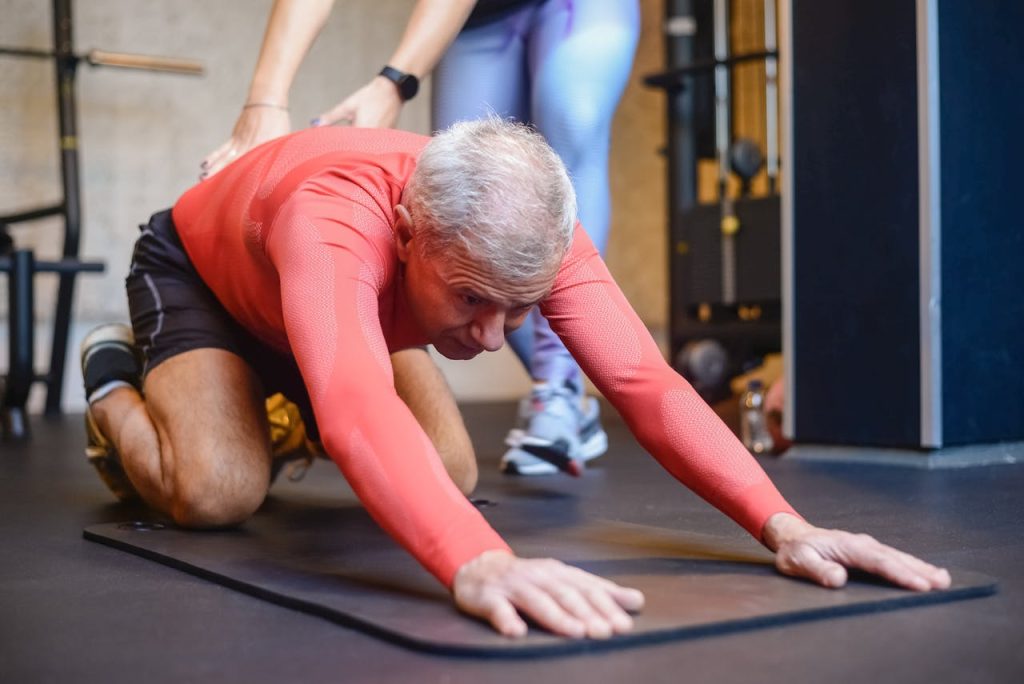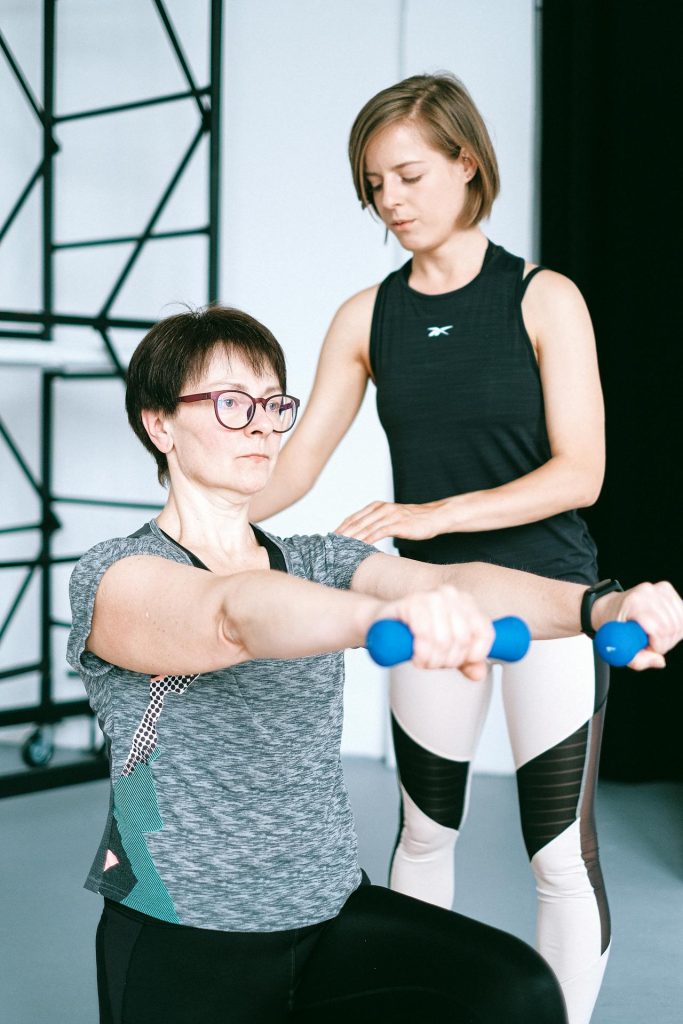Why sleep, stress, and movement are the retirement health trifecta stems from their uncomplicated but powerful impact on your mind and body as you age. It keeps your brain sharp and your mood steady. Maintaining low stress levels reduces your risk of heart issues and helps you feel calm every day. Routine movement keeps your joints limber and your heart robust — and helps daily activities feel lighter. Each one works with the others, so skipping one can make the others less helpful. When you give each of these areas some attention, you build a solid foundation for staying healthy and active. In the upcoming sections, you’ll discover how to apply these habits for improved retirement health.
Key Takeaways
- Here’s why sleep, stress, and movement are the retirement health trifecta
- Establish soothing sleep rituals, practice de-stressing strategies, and prioritize fun movement for your body and mind.
- Keep tabs on your health by logging important metrics, establishing realistic goals, and modifying habits as your demands evolve to keep forward momentum.
- Opt for workouts that enhance balance, strength, and flexibility, and get involved in group or community activities to foster social connection and motivation.
- Embrace technology — health apps and wearables can help you monitor your sleep, exercise, and stress, and there’s a world of online resources for education and support.
- Embrace the retirement health trifecta of sleep, stress, and movement.

Why Sleep Is Your Retirement Superpower
Quality sleep is your body’s retirement superpower, essential for achieving optimal health and wellness. It’s essentially a reset button, allowing you to age gracefully and evade numerous health issues. You’re an anomaly among animals — only we humans voluntarily sacrifice sleep, frequently without good cause. This decision can damage your body and spirit in ways you don’t immediately notice but sense as the weeks wear on. Sufficient rest, seven hours a night minimum, decelerates aging and intensifies your mental faculties. Sleep is more than just making you feel rested — it is a fundamental need that influences the quality of your life as you transition into retirement.
1. Restoring The Body
Your body repairs itself from the day’s friction during sleep, which is crucial for optimal health and overall wellness. Muscles repair, organs regenerate, and energy reserves recharge. However, if you continue to lose sleep, your body’s standard repair work lags, potentially leading to chronic insomnia and weight gain. This makes navigating your health more difficult as you approach retirement age.
To minimize sleep issues, strive to create a dark and chilly sleeping environment, avoid screens before bed, and maintain a consistent sleep routine. These minor adjustments can yield significant benefits, including improved sleep quality and reduced pain, ultimately serving as preventive care against serious health risks.
2. Sharpening The Mind
You require sleep for memory and cogent thinking. When you sleep well, your brain organizes memories and flushes toxins that can bog down your thinking. Missing sleep for even a single night can leave you forgetful and less concentrated.
Frequent sleep deprivation tends to accelerate brain aging and increase your likelihood of issues such as memory loss later in life. Regular sleep keeps your brain alert, allowing you to make good decisions and to continue learning. Good sleep means you rise ready to tackle whatever issue pops up and remain sharp.
3. Regulating Mood
A good night’s rest stabilizes your mood and reduces stress. If you don’t get enough, you could feel short-tempered, sad, or anxious. Bad sleep can make even minor challenges seem huge.
When you sleep well, you cope with stress better and feel calmer. This keeps you maintaining solid relationships, as you’ll be less likely to snap at others or retreat from social engagements. Solid sleep habits provide you with the emotional tools to wear some of that darkness as optimism.
4. Bolstering Immunity
Sleep is your retirement superpower. A single night of truncated sleep—4 hours—can reduce immune cell activity. This makes you more prone to sickness or slower recovery.
Getting seven to eight hours of sleep allows your immune system to function optimally. Sleep helps your body ward off chronic disease, so you remain healthier as you get older. Monitoring your sleep closely can help identify health changes before they become bigger issues.
5. Managing Chronic Conditions
If you’re facing a chronic health issue, sleep is the secret to making you better. Improved sleep may reduce pain, aid in blood sugar management, and decrease the chance of inflammation flares. Routine screenings for your sleep can reveal if your health is shifting.
Easy actions—such as maintaining a consistent bedtime—gobble up your life quality. For a lot of retirees, sleep is more than just rest. It’s a means to control your destiny, a means to thrive in your golden years.
How Unchecked Stress Sabotages Health
Stress is the number one contributor to ill health, particularly in the retirement transition phase. You might think stress would subside once you leave the workforce, but studies reveal that its impact often remains. Almost one-fifth of retirees continue to report sleep disturbances up to seven years into retirement. Chronic stress derails more than your day — it increases your risk for numerous chronic diseases and affects overall health. Stress management is not merely about feeling good; it is fundamental to your wellness, carving out patterns of physical health, mental acuity, and social connection that endure.
Physical Toll
Stress manifests in your body, leaving you exhausted, strained, or sore. Symptoms can include headaches, muscle tension, or a racing heart, and over time, this strain accumulates. Chronic stress is linked to an increased incidence of heart disease, diabetes, asthma, and even cancer. Research indicates that more than 50% of adults are overweight or obese even before retirement, with stress as a significant culprit. Fatigue, a common symptom, affects almost a third of individuals before retirement. Sleep quality is also impacted — approximately 25% experience sleep disturbances before quitting, and nearly 20% continue to struggle afterward. Engaging in light activity, such as a brisk walk or light stretching, can alleviate these concerns, promoting wellness and supporting optimal health during the retirement transition.
Mental Fog
High stress can significantly impact cognitive function, making it difficult to concentrate or retain information, especially during the retirement transition. Choices become more challenging, particularly when navigating health, finances, and daily activities. About 25% of individuals face poor health at retirement age, often linked to chronic stress. Incorporating wellness practices, such as mindfulness through meditation or slow breathing, can help clear your mind. Engaging in uncomplicated activities like reading or music for a few minutes daily can enhance cognitive abilities, supporting retirement success by improving decision-making and overall health, even when life feels overwhelming.
Social Withdrawal
Stress can drive you to isolate yourself from others, which can negatively impact your overall health and lead to poor sleep health. You may blow off parties or refuse to speak to buddies, resulting in isolation—a big enemy of both mind and body. Depression is rampant, with almost 1 in 5 experiencing it before retirement. Social support is important; participating in a group, volunteering, or just maintaining friendships can boost your spirits and help you embrace retirement success more deeply.
The Power Of Purposeful Movement
Incorporating purposeful movement into your day remains one of the most dependable ways to safeguard your health and enhance your overall wellness—particularly if you’re strategizing for retirement success or navigating new schedules. Movement does more than keep your heart and muscles strong; it supports your sleep health and keeps your mind sharp. Even quick bursts of activity—such as stretching, walking, or standing up at regular intervals—accumulate. The World Health Organization recommends a minimum of 150 minutes of moderate-intensity exercise per week for adults, which can significantly reduce their risks of heart disease and improve sleep quality. Consistent movement equals stronger energy, more stable moods, and a genuine lift in everyday life.
Functional Fitness
Functional fitness is the art of cultivating balance, strength, and flexibility, which are essential for achieving retirement success. You can navigate life without falling or being injured by incorporating simple exercises into your daily routine. Do squats while you brush your teeth, balance on one leg while the kettle boils, and stretch before sleep to maintain muscle mass and promote optimal health. These moves simplify activities like lugging groceries and enhance your overall well-being.
There is something about signing up for group classes, online or otherwise, that keeps you motivated. Community in groups is vital for your mental health, fostering connections that can support your retirement transition. You receive the benefits of motion and social bonding, which are crucial during this phase of life.
Personalized workouts can address your specific health needs, especially as you approach retirement age. If you suffer from chronic pain, joint issues, or limited mobility, a professional can design a safe plan tailored to your wellness goals. An occasional routine check helps to stay on course and fine-tune your approach, ensuring you maintain your physical health throughout your post-tirement years.
Cognitive Boost
Working out isn’t only beneficial for your body; it’s a cognitive amplifier as well. Exercise increases blood flow in your brain and enhances memory and concentration. Research demonstrates that individuals who engage in more frequent movement experience a reduced risk of cognitive deterioration with age.
Engage in things that exercise your mind and body. Try a new dance, tai chi, or yoga. They exercise your mind while exercising your body. Coupling movement with learning keeps your brain plastic.
Dancing with Life makes you flexible, inquisitive, and mentally agile, no matter how old you are.
Emotional Resilience
Movement is magic when it comes to stress management and elevating your mood. Exercise helps release endorphins. This can make you feel more centered and bombarded with less stressed.
Whether it’s walking, gardening, or cycling, being outdoors gives you the added advantage of fresh air and nature’s soothing powers. These provide your mind a rest and your body with light exercise.
Exercise also provides you with a constructive channel to unleash emotions. It can reduce the risk of depression and assist in managing mental health disorders. Even a quick stroll or some stretches can do the trick — enough to reset your mood and bring clarity.
Keeping movement in your daily life provides an emotional anchor and a way to navigate life’s ebbs and flows.
The Synergistic Effect Of The Trifecta
Sleep, stress, and movement constitute the trifecta effect of the pillars of health as you enter retirement. Each one informs the others in ways that are straightforward yet deep. By blending all three into your daily routine, you prime yourself for longevity and a gentler aging process. Table 2 illustrates how these elements relate and support one another.
| Element | Supports | Is Supported By |
| Sleep | Stress, Movement | Stress, Movement |
| Stress | Sleep, Movement | Sleep, Movement |
| Movement | Sleep, Stress | Sleep, Stress |
This trifecta of synergy may be the key to optimizing your day. Little decisions like light stretching post-walk or adopting more fruits and whole foods into your diet can nudge your health in the right direction. This trifecta isn’t about merely living longer but living well.
Sleep And Stress
Bad sleep increases your stress hormone levels, leaving you feeling jittery or edgy. High stress, in turn, keeps your mind buzzing and can steal deep, restorative sleep. If you find difficulty in falling or waking frequently, it might be your body’s signal that stress is piling up.
Mindful breathing, reading, or a warm bath before bed can assist your body in winding down and stilling your mind. Easy-to-implement moves such as maintaining a consistent sleep schedule and a quiet bedroom environment both better sleep and reduce stress. When you get a good night’s sleep, your mood lifts and your body manages daily stress with greater dormancy.
Movement And Sleep
Movement on a consistent basis will help you doze off more quickly and experience deeper sleep. Being active — whether that means walking, cycling, or swimming — during the day prompts your body to maintain a natural sleep-wake rhythm called your circadian rhythm.
Light stretching or yoga in the evening can help relax tense muscles and ‘ready’ your mind for sleep. Even modest motion, as little as ten minutes, can be a game-changer. A busy day naturally yields a cozy, quiet night.
Stress And Movement
Exercise is one of the premier stress management tools. Physical activity triggers the release of endorphins that can elevate your mood and soothe anxiety.
You don’t need to grind through workouts. Short walks, dancing, or gardening can aid in the release of tension. Discover what you love, and build it in your life. These minutes on the move aren’t just good for your body — they provide your mind a salubrious outlet through which to handle stress.

Creating Your Personal Health Blueprint
To build your own health blueprint for retirement success is to mold a strategy that works for you, your objectives, and your lifestyle. For the majority, this encompasses a balanced diet, adequate sleep, exercise, and stress management. It’s about listening to your body and mind, fine-tuning as you go, and keeping things sustainable.
Assess Your Baseline
Begin by logging your current health. Track your sleep, stress, and weekly movement. Whether it’s a journal, mobile app, or spreadsheet—whatever suits your style. Pay attention to your diet, in particular, maintaining a balance of whole foods such as fruits, vegetables, lean proteins, and whole grains.
Understanding your health history is fundamental. Jot down significant occurrences, hereditary threats, and former habits that aided or sabotaged your health. This will allow you to recognize trends and establish targets. Do you wake up tired? Is stress a daily struggle? Or are you logging the recommended 150 minutes of activity per week?
Regular check-ins count. Once a month, read through your notes. Check out what’s new and what’s not. Simple questions work: Is sleep better? Are you consuming additional whole foods? Take this feedback to refine your plan.
Set Realistic Goals
Make goals that suit your life, not theirs. Don’t strive for big change immediately. Pick one or two, such as sleeping 7–8 hours or incorporating a post-dinner walk. Break each goal into smaller steps, such as going to bed 15 minutes early or incorporating an additional serving of vegetables.
Recognize small victories and applaud them. Every step, even if tiny, gathers steam. Tell a friend your goals or track them. This keeps you honest and makes it easier to persist.
Build Simple Routines
Rituals simplify healthy living. When steps are small and repeatable, they turn into habits.
- Hit the sack and rise at the same time
- Add 10 minutes of movement after meals
- Eat a piece of fruit with breakfast
- Practice 5 minutes of deep breathing or meditation
- Choose water over sweet drinks
| Activity | Health Benefit |
| Brisk walking | Boosts heart health, mood |
| Consistent sleep | Regulates hunger, restores the body |
| Yoga/stretching | Lowers stress, improves mobility |
| Whole foods | Supports the immune system, energy |
Small things compound. Trade an elevator ride for the stairs. Choose whole grains instead of white bread. Over time, these shifts promote sleep, reduce stress, and inject more movement into your day.
Leveraging Technology For Better Health
Technology plays a crucial role in promoting wellness and managing your health, regardless of your location or age. Digital tools such as apps, wearables, and online health resources offer fresh approaches to monitoring sleep, stress, and activity—the essential pieces of maintaining health in retirement and beyond. These tools are particularly beneficial for those navigating the retirement transition, as they help ensure a smooth adjustment to postretirement years.
Health apps are invaluable for tracking your sleep, steps, and stress in real time. Many apps now provide insights into your sleep quality, heart rate, and even stress signals throughout your day. You can set goals, view trends, and identify what aids or sabotages your sleep health. Some apps guide you through breathing or meditation drills, helping you manage stress with explicit instructions that can be implemented at home or while on the go. These rudimentary tools are convenient for detecting minor changes in your health behaviors before they escalate into more serious issues.
Wearables, such as fitness bands and smartwatches, greatly simplify the monitoring of your health. These devices track steps, heart rate, and sleep patterns, providing insight into your daily and nightly rhythms. They buzz to remind you to move, display your total sleep time, and gently nudge you if you’ve been sedentary for too long. By visualizing your patterns, you can adjust your routine to optimize rest and movement, which is vital for maintaining overall health during retirement.
Online health resources and support groups keep you informed and connected. There are global sites, forums, and courses on sleep, exercise, and stress management. Most provide tips from physicians or fellow users, making it easier to discover what helps others like you. Joining a virtual yoga class, watching fitness videos, or finding expert-trusted sleep tips can significantly enhance your retirement success and overall well-being.
Tech also keeps you connected with your care team. With video calls, online chats, and EHRs, you can share your sleep logs, exercise history, or stress notes with your doctor from anywhere. EHRs reduce errors and enable your care team to collaborate to provide you with optimal treatment. With remote monitoring and telemedicine, it’s simple to get advice, check progress, and tweak your plan, without a lengthy wait or a trip.
Conclusion
Sleep allows your mind and body to repair. Stress can erode your mood and energy. Movement each day keeps your joints loose and your heart steady. Small daily steps accumulate quickly. Personally, I often turn to a post-dinner walk, basic breathing drills, or short stretches to remain lucid. A sleep log or a step tracker can help you identify what’s effective. Your health plan should suit your life and what seems right for you. Experiment with one little change today. Feel it out, then attempt a second. Your future self will thank you for those steps today.

Frequently Asked Questions
1. Why Are Sleep, Stress, And Movement Called The Retirement Health Trifecta?
We call them the trifecta because, collectively, they bolster your body, mind, and emotional health, contributing to retirement success. Prioritizing all three lets you savor a healthier, more active retirement.
2. How Does Quality Sleep Benefit You In Retirement?
Good sleep nurtures your memory, mood, and vigor, playing a crucial role in overall health and wellness. It bolsters your immune system, reducing sleep disturbances and enabling you to enjoy daily life.
3. What Are The Risks Of Unmanaged Stress During Retirement?
Uncontrolled stress can lead to poor sleep health, heightening your risk of chronic insomnia, heart disease, diabetes, and depression, ultimately reducing overall wellness.
4. Why Is Movement So Important As You Age?
Regular movement supports optimal health and wellness, keeping your muscles strong and your body limber, which is essential for a successful retirement transition.
5. How Do Sleep, Stress, And Movement Work Together?
When you prioritize sleep health and engage in regular physical activity, each habit reinforces the others. This combination creates a robust cycle that supports your overall health and wellness throughout your retirement transition.
6. How Can Technology Help You Manage Sleep, Stress, And Movement?
Tech can monitor your sleep health, coach your meditation, and recommend exercise, providing retirement advice to optimize your daily health habits for overall wellness.
7. What Steps Can You Take Today To Improve Your Retirement Health Trifecta?
Begin by establishing a sleep routine that promotes sleep health, de-stressing, and moving more for overall wellness.
Start Your Journey To A Vibrant Retirement With Fitness Ellipsis!
Are you ready to enjoy your golden years with more energy, confidence, and a sense of purpose? At Fitness Ellipsis, we know that healthy aging isn’t just about exercise or diet—it’s about creating a balanced lifestyle that supports your body, mind, and spirit.
Our Lifestyle Coaching for Retirees is designed with your needs in mind. With personalized guidance, supportive coaching, and strategies tailored to your stage of life, we’ll help you build routines that enhance mobility, reduce stress, and strengthen overall well-being. Whether you want to stay active, improve daily habits, or rediscover motivation, our compassionate team is here to support you every step of the way.
Through customized nutrition advice, age-appropriate movement plans, stress management techniques, and ongoing encouragement, we’ll help you feel vibrant, independent, and in control of your health. This isn’t just about longevity—it’s about enjoying a fulfilling, energized retirement.Don’t wait to invest in your well-being. Join the Fitness Ellipsis family today and take the first step toward a healthier, more empowered life in retirement. Contact us now to learn how our lifestyle coaching program can help you thrive today, tomorrow, and for years to come.
Disclaimer:
This article is for informational and educational purposes only and is not intended as medical advice, diagnosis, or treatment. Nutritional needs vary by individual, especially for older adults or those with chronic health conditions. Always consult with a qualified healthcare professional or registered dietitian before making significant changes to your diet or protein intake.




